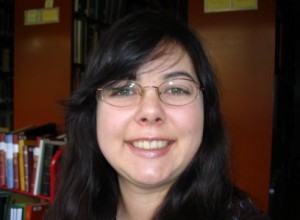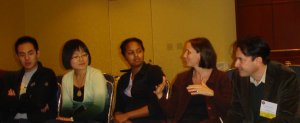For those who are trying to understand us science types here?s a few items that may help.
What do we think?
We might err, but science is self-correcting
Author: Lord John Krebs Principal of Jesus College, Oxford
This piece explains why scientists question everything, and why there are not always clear-cut answers to scientific questions. Lord Krebs expresses the feelings of many scientists on the need for governments not to reject scientific advice just because it is inconvenient without explanation, and in return the need for scientists to be scrupulously honest in their claims.
What do we care about?
You may have heard the term citizen scientists in the context of citizens with little formal scientific training who contribute to major scientific discoveries. This is a great definition for citizen scientists, but, I’d like you to consider something a secondary definition.
I’d like to promote the idea of the citizen scientist as people who intertwine their work and their citizenship, doing science differently, working with different people, drawing new connections and helping to redefine what it means to be a scientist.
To that end I recommend reading:
citizen scientists reconstructing science with civil society (PDF)
Author: Jack Stilgoe Published by: Demos
Contents: Acknowledgments, Preface, 1 Towards collective experimentation, 2 Science and civil society, 3 The value of science and scientific values, 4 Doing things differently, 5 Political scientists, 6 Rediscovering scientific diversity, Notes, References.
CC: Some rights reserved
How do we preserve our history?
Science is a field in which almost everything ever written stays relevant, for a given value of relevance. Many of the greatest scientific minds are currently alive, and the British Library is in the process of creating a new archive, Oral History of British Science, dedicated to collecting and preserving 200 in-depth interviews with British scientists. Each interview will be 10-15 hours in length, plus supplementary recordings and seminars. There are four themes that will be explored by group witness seminar: The Factory of Life, Cosmologies, Made in Britain, and A Changing Planet.? Many people do not realize how driven scientific interest is by individual lives and world events. Small things, an observation, a question, or an anomaly, often lead to the most dramatic results. I’ve very excited about this project and look forward to seeing history through the lens of Britain’s Scientists.
What do we enjoy?
One of my favorite sites, and proof for those who still doubt that scientists are passionate, energetic, and fun people is the Symphony of Science website. The videos are created using clips from Carl Sagan’s Cosmos, owned by Druyan-Sagan Associates, Inc. The Symphony of Science is a musical project headed by John Boswell designed to deliver scientific knowledge and philosophy in musical form.
5 music videos available are accessible through the home page of the Symphony of Science website.
My favorite quote is ‘Science is the poetry of reality’.
I’ll leave you with a tip for those who need to quickly create a professional poster; check out PosterSession.com, overnight shipping is available. Thanks to Stephen Bell for mentioning this service in a recent blog post. (In science, a poster presentation counts as a significant professional publication.)


